The Cold Food Festival, also known as Qingming Festival, is a traditional Chinese holiday that falls on April 4th or 5th each year. The festival is a time for Chinese people to pay respects to their ancestors and to remember the departed.
what is cold food festival?
The Cold Food Festival, or “Hanshi Festival” in Chinese, is a traditional holiday that falls on the day before or two days before the Qingming Festival, also known as Tomb Sweeping Day. During the festival, people traditionally refrain from lighting fires and instead eat only cold food, hence the name “Cold Food” festival.
Originally, the Cold Food Festival lasted for a month, but it has gradually been shortened to three days. Although people no longer eat exclusively cold food during this period, the festival remains an important cultural tradition, especially in rural areas of China.
This ancient festival has been passed down through the generations and was replaced by the Qingming Festival approximately 300 years ago during the Qing Dynasty. Today, the Qingming Festival has become an important day for people to pay respects to their ancestors. On the day of the Cold Food Festival, people usually prepare for the next day’s visit to their ancestors’ graves.
As the Cold Food Festival falls close to the Qingming Festival, it is not only a day of remembrance but also a time to celebrate the arrival of spring and to enjoy outdoor activities such as picnics. With the coming of spring, nature is reborn and everything appears fresh, bright, and clean.
In conclusion, the Cold Food Festival is an important traditional Chinese holiday that carries deep cultural significance. Although the practice of eating exclusively cold food has largely disappeared, the festival remains an opportunity for people to pay their respects to their ancestors and to celebrate the arrival of spring.
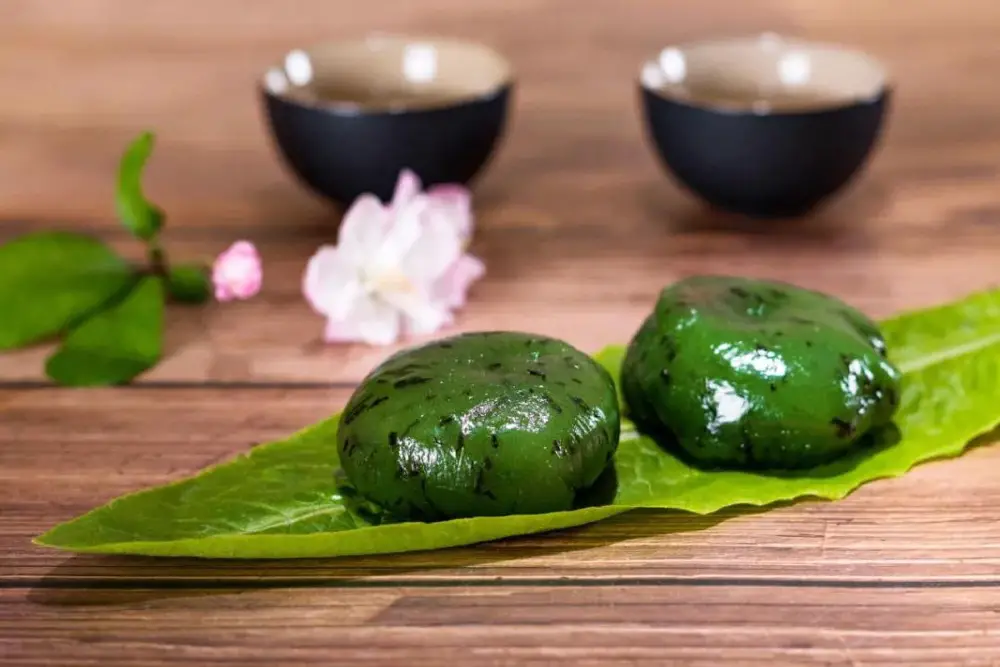
cold food festival origin history(cold food festival story)
The origin of the Cold Food Festival has been a subject of debate since ancient times, with two main views being the most popular. One of them is the famous story of Jie Zhitui. During the Spring and Autumn Periods, Duke Wen of Jin was forced to flee from various states, and Jie Zhitui was his loyal minister. After Duke Wen took the throne, Jie Zhitui retired with his mother to the mountains. Duke Wen ordered the mountains to be set on fire to force Jie Zhitui out, but he and his mother were burned to death. To commemorate Jie Zhitui, Duke Wen established the Cold Food Festival.
The second explanation comes from the ancient custom of “changing fire.” According to legend, in the distant civilization era, people would extinguish the old fire every spring and obtain new fire by drilling wood. During the transition from the old to the new fire, there would be a short period without fire, and people would only eat uncooked food. The Cold Food Festival originated from this.
In existing written records, Huan Tan during the Han Dynasty was the first to mention the Cold Food Festival. He mentioned a custom prevalent in the Taiyuan region of Shanxi Province, where people could only eat raw food on a designated day, even if they were sick. This custom was established to commemorate Jie Zhitui. In the Eastern Han Dynasty, scholars such as Cai Yong agreed with Huan Tan’s account, but during the Sui and Tang Dynasties, people began to doubt that the Cold Food Festival was established to commemorate Jie Zhitui. Particularly during the reign of Emperor Xuanzong of Tang, the festival was designated as a national legal holiday, and the official decrees directly overturned the Han Dynasty’s account, attributing the origin of the Cold Food Festival to the ancient “changing fire” custom, with no mention of Jie Zhitui.
what is the origin of cold food during the Qingming festival
The Cold Food Festival, or Hanshi Festival in Chinese, has a long and rich history that dates back to the Spring and Autumn Period of Chinese history (771 BCE – 476 BCE).
The festival is said to have originated from the tragic story of Jie Zitui, a loyal and virtuous servant of Duke Wen of Jin. During a time of famine, Jie Zitui selflessly cut a piece of flesh from his own leg to make a soup for the Duke to eat. Later, when the Duke’s fortunes improved and he rewarded his loyal followers, Jie Zitui declined any rewards and chose to live in seclusion with his elderly mother in the mountains.
Years later, the Duke wanted to see Jie Zitui again and went to the mountains to find him. However, Jie Zitui refused to meet him and instead retreated deeper into the forest. The Duke ordered his men to set fire to the forest to force Jie Zitui out, but tragically, Jie Zitui and his mother died in the fire.
In memory of Jie Zitui’s loyalty and sacrifice, the Duke ordered that fires be forbidden for three days in honor of Jie Zitui’s death. During this period, people could not cook hot food and instead ate only cold food, such as cold meat, cold noodles, and dumplings.
Over time, the practice of eating only cold food during the Cold Food Festival became a cultural tradition, and it evolved to become a time for people to pay their respects to their ancestors and deceased loved ones.
Today, the Cold Food Festival is still celebrated in China, but the practice of eating only cold food has largely disappeared. However, the tradition of visiting graves and paying respects to ancestors and loved ones still holds great significance for many Chinese people.
Why are Qingming Festival and Cold Food Festival at the same time?
In history, the festivals of Cold Food Day and Qingming Festival were close in proximity, and over time they merged into one holiday. The Tang Huiyao, Volume 82, Vacation Regulations, clearly recorded: “In the 24th year of the Kaiyuan reign (736 AD), on the 11th day of the second month, it was ordered that Cold Food Day and Qingming Festival should have a four-day vacation. In the 13th year of the Dali reign (778 AD), on the 15th day of the second month, it was ordered that from then on, Cold Food Day and Qingming Festival should have a five-day vacation. In the 6th year of the Zhengyuan reign (790 AD), on the 9th day of the third month, it was ordered that Cold Food Day and Qingming Festival should be combined with the New Year Festival and each be given three days off before and after.” Therefore, the Chinese Traditional Culture Overview stated: “Around the Tang Dynasty, Cold Food Day and Qingming Festival were merged into one.”
Before the calendar reform of Tang Ruowang in the early Qing Dynasty, Qingming Festival was set two days after Cold Food Day; after the Tang reform, Cold Food Day was set one day before Qingming Festival. The modern system of the 24 solar terms follows Tang’s calendar reform, so Cold Food Day falls on the day before Qingming Festival.
cold food festival food
The Cold Food Festival has a history of over 2,600 years, and eating cold food is one of the main customs. Cold food dishes include cold rice porridge, cold noodles, cold rice starch, Qingjing rice, and Ding, among others. Offerings for the festival include face swallow, snake plate rabbit, jujube cake, fine wheat, and Shen Yan, among others.
Due to the relationship between the Cold Food Festival and the Qingming Festival, some places still observe the tradition of eating cold food during the Qingming Festival. In many places, after completing the worship ceremony, the sacrificial food is distributed and eaten.
Qingtuan
Qingtuan is a green cake made with grass juice. The method involves first steaming tender Artemisia, small thistle grass, and other ingredients in a large pot, adding lime to soften them, rinsing off the lime water, and then kneading them into glutinous rice flour to form a green-colored ball. Eating qingtuan is popular in the Jiangsu and Zhejiang areas.
Ai Ban
There is a saying that goes, “Eat Ai Ban before and after Qingming, and you won’t get sick for the whole year.” Ai Ban is a traditional food that Hakka people must have during the Qingming Festival. Its main ingredients are glutinous rice and mugwort, and the method of making it is not very complicated. Because foods made with mugwort have a unique taste, many people like to eat Ai Ban.
The custom of eating eggs during the Qingming Festival originated in some places in the pre-Qin period. The ancients believed that eating eggs during the Qingming Festival meant having good health for the whole year. Qingming eggs can not only be eaten but can also be used for painting or carving. However, painted eggs can still be eaten, while carved eggs can only be used for viewing.
Sanzi
In ancient times, before the Qingming Festival, there was a “Cold Food Festival,” during which no fire could be made, and only cold food could be eaten. Therefore, people made sesame oil sanzi, called “cold utensils,” which were convenient to eat and carry. Li Shizhen also wrote about it in his “Compendium of Materia Medica.” Su Dongpo, when he was in Xuzhou, liked to eat sanzi, and wrote in his poem “Cold Utensils”: “Delicate hands knead them into jade, frying them in green oil until they turn golden, the spring sleep mist light or heavy, flattening them to wrap around the arms of a beautiful woman.” Cold utensils were the name for sanzi during the Han and Tang dynasties.
Warm Mushroom Bun
People in the Taining area have the tradition of eating warm mushroom buns during the Qingming Festival. Warm mushroom buns are made from a local plant called “warm mushroom grass.” The shape of the warm mushroom buns made in the south is similar to that of steamed buns, while those made in the north are similar to dumplings. However, there are no strict requirements for the shape of warm mushroom buns in folk culture.
Zitui Mo
The custom of eating zitui mo during the Qingming Festival is to commemorate Jie Zitui’s quality of not seeking fame or fortune. Zitui mo has many different shapes, and different shapes of zitui mo are given to different people. The shapes of zitui mo for men and women are different.
Qingming Rice
Qingming Rice, as the name suggests, is a dish eaten during the Qingming Festival. It is made from various edible green herbs and is very beneficial to the body, making it popular among many people.
Due to the relationship between the Cold Food Festival and the Qingming Festival, some places still maintain the tradition of eating cold food during Qingming Festival. After completing the ritual offerings, the food is shared among the participants.
Mugwort Cake
During the Qingming Festival, it is customary to eat green foods. In rural areas, there is a tradition of steaming mugwort cakes.
In Huzhou, Zhejiang Province, every family makes zongzi for the Qingming Festival. Zongzi can be used as an offering to ancestors or as a snack for outdoor activities. There is a saying, “Qingming zongzi is the most delicious.”
Qingming Snails
Around Qingming, snails are fat and plump. There is a saying, “Qingming snails are as big as geese.” It is a tradition for farmers to eat snails during Qingming. The snail meat is picked out with a needle and cooked, which is called “picking green.”
Eating Ma Hua
Ma Hua is a traditional Chinese snack. It is made by twisting two or three strips of dough together and frying them in oil. It is a popular snack in various parts of China, such as Tianjin Ma Hua, Jishan Ma Hua in Shanxi, Xianyang Ma Hua in Shaanxi, Chongyang Ma Hua in Hubei, and Suzhou-Oufen Ma Hua. Among them, Tianjin Ma Hua is the most famous.
Ma Hua is rich in protein, amino acids, various vitamins, and trace elements. It is a low-fat snack with moderate calories. It can be enjoyed as a leisurely snack and can also be paired with wine or tea. In the northeastern region of China, there is an old custom of eating Ma Hua.
Eating Donkey Rolls
Donkey Rolls is a traditional snack in Beijing and Tianjin. The finished product is yellow, white, and red, and looks very attractive. It is named “Donkey Rolls” because of the yellow bean flour sprinkled on top, which looks like the dust kicked up when a wild donkey rolls around in the Beijing suburbs. The ingredients for Donkey Rolls include cornmeal, soybean flour, clear sand, sugar, sesame oil, osmanthus, green and red silk, and melon seeds. The production process involves making the dough, mixing the filling, and shaping the rolls. The finished Donkey Rolls have a golden outer layer covered in bean flour, with a sweet and soft filling, and a unique flavor. It is a traditional snack enjoyed by people of all ages.
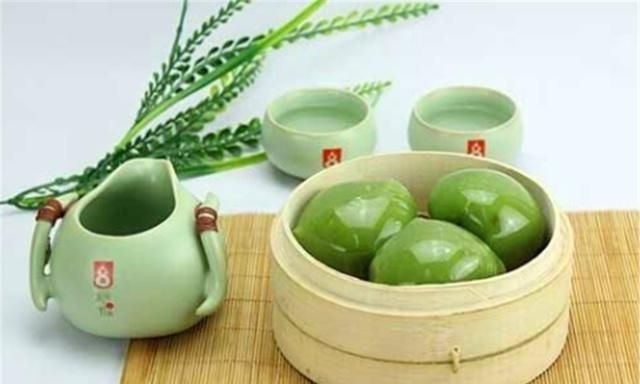
cold food festival custom
The Cold Food Festival is one of the traditional festivals in China, which has formed many cultures and customs during its development. The following are some of the customs of the Cold Food Festival:
Prohibition of Fire: In ancient times, the Cold Food Festival was also known as the “prohibition of smoking festival,” where every household was prohibited from lighting a fire and could only eat cold food. However, due to the Chinese people’s persistence in commemorating their ancestors, this festival has been banned and revived several times from the Eastern Han Dynasty to the Northern and Southern Dynasties. The Tang Dynasty recognized and participated in this festival, and Su Shi’s “Looking at the Jiangnan Chaoran Platform” describes the poet’s act of making tea after the Cold Food Festival. The custom of banning fires during the Cold Food Festival in Shanxi is mostly for one day, and only a few places still practice the three-day ban on fires.
Ancestral Worship: Sweeping tombs and worshipping ancestors during the Cold Food Festival were considered “wild rituals” from the Southern and Northern Dynasties to the Tang Dynasty. It was later included in the “Volume 87 of the Kaiyuan Rites” and became one of the auspicious ceremonies recognized and advocated by the official authorities. It later evolved into imperial sacrifices, official sacrifices to Confucian temples and ancestors, and people visiting their ancestral tombs. During this time, families or clans would go to their ancestors’ graves, pay their respects, add soil, hang paper money, and then roll down snake-shaped or rabbit-shaped cakes and “zituiyan” (a type of pastry) on top of the grave. They would then pierce them with willow branches or brooches, place them in high places in their homes, and imply that they have inherited their ancestors’ virtues.
Food and Drink: The Cold Food Festival’s food includes cold rice porridge, cold noodles, cold congee, Qingjing rice, and ding, etc. The Cold Food Festival’s offerings include face swallows, snake-shaped or rabbit-shaped cakes, jujube cakes, wheat, and Shenyin, etc. There are also dozens of beverages, such as spring wine, new tea, and sweet spring water. Most of them have profound meanings, such as the snake-shaped or rabbit-shaped cakes that are offered during the festival. It is said that “if you eat snake-shaped or rabbit-shaped cakes, you will become rich,” meaning that people hope for national prosperity and strength. The “zituiyan” symbolizes the idea of never forgetting our forefathers and keeping their noble virtues in our hearts.
Willow Insertion: Willow is a symbol of the Cold Food Festival, originally meant to commemorate Jie Zitui’s pursuit of political integrity. As early as the Southern and Northern Dynasties, “Jingchu Suishiji” recorded “Every household in the Jianghuai area inserts willow branches on the door on the Cold Food Festival day.” In Anhui, Suzhou, and other places, people also wear mustard flowers and wheat leaves instead of willow branches. According to local historical records, people would “insert willows on the graves,” “attach willow branches to the doors,” “insert them in the eaves, beds, and kitchen stoves,” “wear them on their heads or tie them to their belts,” “put them in bottles and offer them to Buddha or gods,” and “insert willows on every door.” Therefore, there is a saying among the people that “if you don’t wear willows on Qingming (Cold Food Festival), your youthful beauty will turn into white hair.”
Outing: Also known as “spring outing,” this custom was popular in the Tang and Song dynasties. People would go sightseeing with family and friends after paying respects to their ancestors. The Ming Dynasty book “Imperial Scenery” describes the scene of people going on spring outings on the day of Qingming Festival, with tens of thousands of people traveling by carriage, horseback, and foot.
Swing: The swing was originally a recreational activity for palace women during the Cold Food Festival in ancient times. The book “The Legacy of the Kaiyuan and Tianbao Reigns” by Wang Renyu of the Five Dynasties states, “During the Tianbao reign, swings were set up in the palace during the Cold Food Festival and the palace ladies were ordered to play and joke around. The emperor called it the ‘Half Immortal Play,’ and the people in the capital called it that too.” The Song dynasty prime minister Wen Yanbo’s poem “Passing Longmen on the Day of Cold Food Festival” describes “willow branches hanging green strings by the bridge, swings standing in a row with colored ropes.”
Cuju: This custom was popular in the Tang dynasty. The book “Wenxian Tongkao” from the Song dynasty states, “Cuju originated in the Tang dynasty. Two tall bamboo poles were erected with a net tied to the top to serve as the goal. Players were divided into two teams and the winner was determined by scoring goals.” Historical records show that Emperor Dezong, Emperor Xianzong, Emperor Muzong, and Emperor Jingzong of the Tang dynasty all enjoyed playing cuju. The book “The Yuan Gu of the Prefecture and the Capital” records that in the twelfth year of the Zhenyuan reign of Emperor Dezong, during the Cold Food Festival, the emperor watched military officials and aristocrats’ sons play cuju and also gave a banquet to the prime minister.
Poetry: During the Cold Food Festival, literati would think of their hometowns and loved ones or be inspired by the scenery and express their emotions through poetry. The book “The Complete Tang Poems” alone has over 300 poems by famous poets such as Emperor Xuanzong, Zhang Shuo, Du Fu, Han Yu, and Liu Zongyuan. There are also over 100 Song, Jin, and Yuan dynasty poems and lyrics. The Cold Food Festival has become a unique branch in the tree of Chinese poetry and art.
Cleansing the Intestines: During the Cold Food Festival, people go out to collect wild vegetables, which not only exercises the body but also meets the body’s nutritional needs. Finally, let’s talk about the issue of mental adjustment in spring health. Women should prevent mental illnesses by going out and relaxing during the Cold Food Festival if they feel upset during the spring. For men, even though they don’t have the issue of feeling upset in the spring, they can still pay their respects to their ancestors, express their grief, and regulate their emotions during the festival. This is very beneficial for the liver. After 5,000 years of cultural nourishment, the Cold Food Festival and Qingming Festival have become a holiday for remembering ancestors and inspiring the living.
Cold Food Festival vs. winter clothing festival
The Cold Food Festival and Winter Clothing Festival are both traditional holidays in China that have roots in ancestor worship and the changing seasons.
The Cold Food Festival, also known as the Hanshi Festival, is a holiday that takes place on the day before or two days before the Qingming Festival (Tomb Sweeping Day) in April. During the festival, people traditionally refrain from lighting fires and instead eat only cold food to commemorate the loyalty and filial piety of Jie Zhitui, a loyal minister who died of starvation when he refused to betray his prince.
On the other hand, the Winter Clothing Festival takes place on the first day of the lunar calendar in October. It marks the arrival of winter and is a day for people to offer sacrifice to their ancestors by burning paper clothing in front of their graves to keep them warm in the afterlife. It is also a day for parents and lovers to send warm clothes to the living people they care about.
In summary, the Cold Food Festival is a holiday focused on abstaining from fire and eating only cold food to honor a loyal minister, while the Winter Clothing Festival is a day to honor ancestors by sending them paper clothing and sending warm clothes to loved ones.
Cold Food Festival vs.Laba Festival
The Cold Food Festival and the Laba Festival are both traditional holidays in China, but they have different origins and cultural significance.
The Cold Food Festival, also known as Hanshi Festival, is a day of remembrance and mourning that falls on the day before or two days before the Qingming Festival (Tomb Sweeping Day). During the festival, people traditionally refrain from lighting fires and instead eat only cold food, which is why it is called the “Cold Food” festival. The tradition of eating cold food dates back to the Spring and Autumn Period (770-476 BC), when a loyal minister named Jie Zitui died in the mountains because he refused to betray his prince. To commemorate Jie’s loyalty, the prince ordered that no fires should be lit for three days, and people had to eat only cold food.
On the other hand, the Laba Festival is a traditional Chinese holiday that is celebrated on the eighth day of the twelfth lunar month. The festival has a long history and is believed to have originated as a harvest festival. Nowadays, people usually eat Laba porridge, which is made of mixed grains and nuts, on this day. Laba porridge is said to have a nourishing effect on the body and is also believed to bring good luck and ward off evil spirits. In addition to eating Laba porridge, people also visit temples and offer sacrifices to ancestors and deities on this day.
In summary, the Cold Food Festival is a day of remembrance and mourning, while the Laba Festival is a day of celebration and gratitude for a good harvest. The Cold Food Festival is associated with eating only cold food, while the Laba Festival is associated with eating Laba porridge.
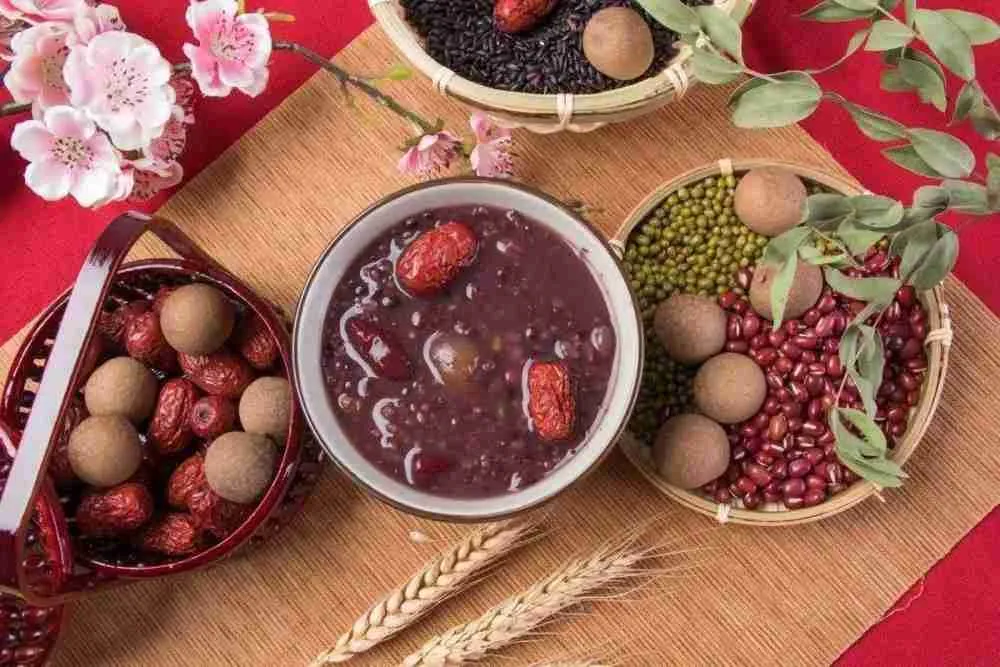
Cold Food Festival vs. winter solstice festival
The Cold Food Festival and the Winter Solstice Festival are both traditional Chinese festivals, but they have different origins and customs.
The Cold Food Festival, also known as the Hanshi Festival, is a day for people to remember Jie Zhitui, a loyal minister who lived in the Spring and Autumn Period of ancient China. During the festival, people eat only cold food and refrain from lighting fires to commemorate Jie Zhitui, who died because he refused to betray his prince. The festival usually falls on the day before or two days before the Qingming Festival, which is a day for tomb sweeping.
The Winter Solstice Festival, on the other hand, is a day to celebrate the shortest day of the year and the return of longer days. It usually falls on December 21st or 22nd in the northern hemisphere, which is the winter solstice. The festival has a long history in China and is celebrated with various customs, such as eating dumplings, having family reunions, and bathing with special herbs. In ancient times, the Winter Solstice Festival was considered more important than the Chinese New Year.
Therefore, while both festivals have cultural and historical significance in Chinese traditions, the Cold Food Festival is more about commemorating a loyal minister, and the Winter Solstice Festival is more about celebrating the winter solstice and the return of longer days.
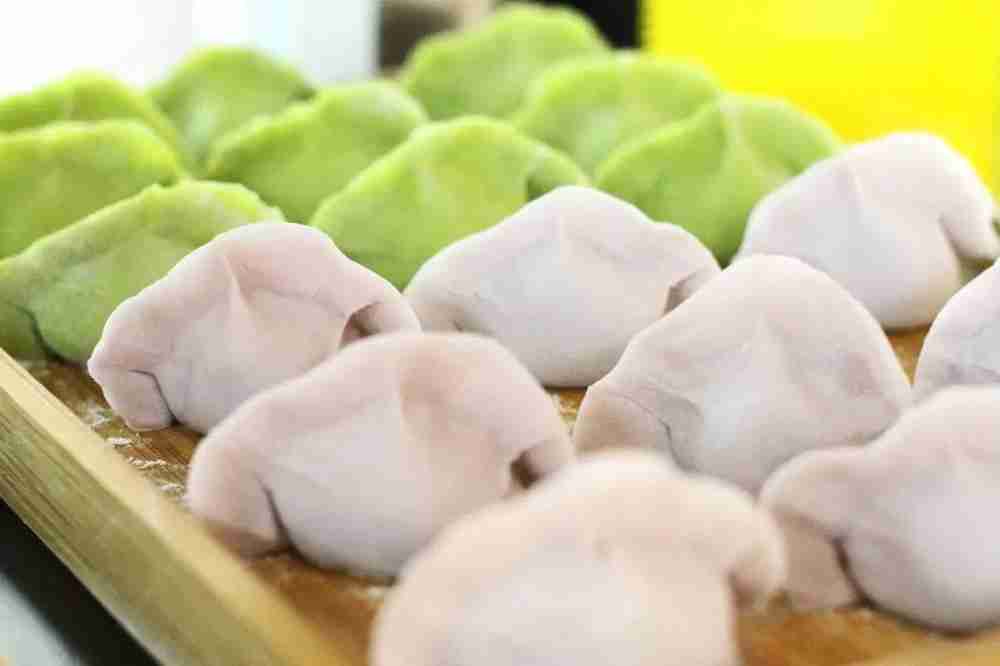
Cold Food Festival vs.Zhongyuan Festival
The Cold Food Festival and the Zhongyuan Festival are two different traditional Chinese festivals.
The Cold Food Festival, also known as Hanshi Festival, is celebrated on the day before or two days before Qingming Festival (Tomb Sweeping Day). During the Cold Food Festival, people eat only cold food and do not light a fire. The festival originated from a story of a loyal minister who went against the emperor’s orders to avoid lighting fires and instead ate only cold food to mourn the death of his friend. It has since become a day to remember the deceased and honor their memory.
On the other hand, the Zhongyuan Festival, also known as Ghost Festival or Hungry Ghost Festival, is celebrated on the 15th day of the seventh lunar month. It is believed that on this day, the gates of hell are open, and the ghosts of the deceased return to the world of the living. People offer food and burn incense to appease these ghosts and to honor their ancestors.
In summary, the Cold Food Festival is a day to remember and honor the deceased, while the Zhongyuan Festival is a day to appease ghosts and honor the ancestors.
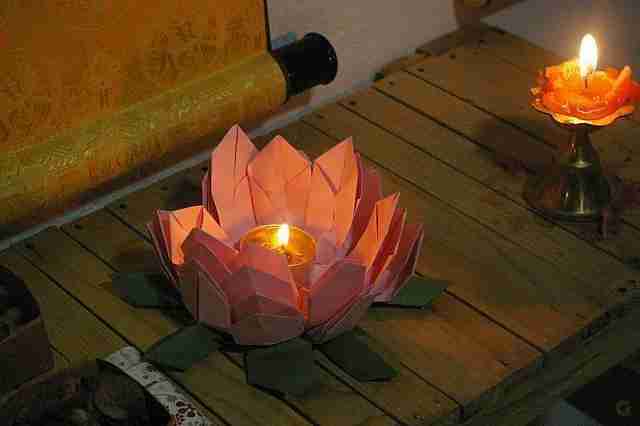
Cold Food Festival vs.Dragon Boat Festival
The Cold Food Festival and the Dragon Boat Festival are two different traditional festivals in China with distinct customs and meanings.
The Cold Food Festival, or “Hanshi Festival” in Chinese, is a traditional holiday that falls on the day before or two days before the Qingming Festival, also known as Tomb Sweeping Day. During the festival, people traditionally refrain from lighting fires and instead eat only cold food, hence the name “Cold Food” festival. The festival has a history of more than 2,500 years and originated from the story of a loyal minister named Jie Zitui who cut a piece of his leg to feed his starving prince during a time of famine. The festival is mainly about showing respect and remembrance for Jie Zitui and other selfless heroes who have sacrificed their lives for the benefit of the country and the people.
The Dragon Boat Festival, or “Duanwu Festival” in Chinese, is a traditional holiday that falls on the fifth day of the fifth lunar month, usually in June on the Gregorian calendar. The festival has a history of more than 2,000 years and is held in honor of the famous poet and statesman Qu Yuan. Qu Yuan was a loyal minister who was exiled by the king and eventually committed suicide by drowning himself in the Miluo River. The local people tried to save him by racing their boats to the spot where he had jumped into the river, and this is said to be the origin of the dragon boat race. The festival is mainly celebrated with dragon boat racing, eating zongzi (a type of glutinous rice dumpling), and hanging herbs such as wormwood and calamus to repel insects and evil spirits.
In summary, the Cold Food Festival is mainly about showing respect and remembrance for selfless heroes who have sacrificed their lives, while the Dragon Boat Festival is mainly about honoring Qu Yuan and celebrating with dragon boat racing and eating zongzi.
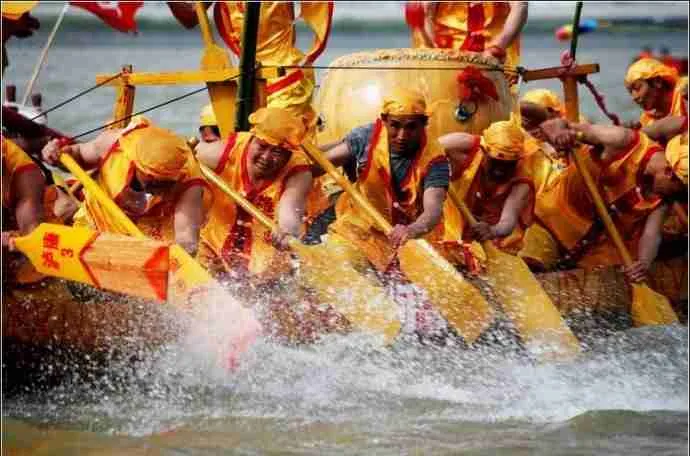
Cold Food Festival vs.Double Ninth Festival
The Cold Food Festival and the Double Ninth Festival are two distinct traditional festivals in China.
The Cold Food Festival, also known as Hanshi Festival, is a traditional holiday that falls on the day before or two days before the Qingming Festival, also known as Tomb Sweeping Day. During the festival, people traditionally refrain from lighting fires and instead eat only cold food. The festival is mainly a time to remember and honor the dead, and to pay respects to ancestors by visiting their graves and offering sacrifices.
On the other hand, the Double Ninth Festival, also known as Chongyang Festival, is celebrated on the ninth day of the ninth lunar month. The festival is a time for people to climb mountains, drink chrysanthemum wine, and enjoy the autumn scenery. It is also a day to pay respect to the elderly, as the number “9” is associated with longevity in Chinese culture. During the festival, people often visit and give gifts to their elderly relatives, as well as participate in activities such as flying kites and wearing dogwood.
Overall, while both festivals have a cultural and historical significance in China, they have different themes and customs associated with them. The Cold Food Festival is about honoring the dead and ancestors, while the Double Ninth Festival is about enjoying the beauty of autumn and showing respect for the elderly.
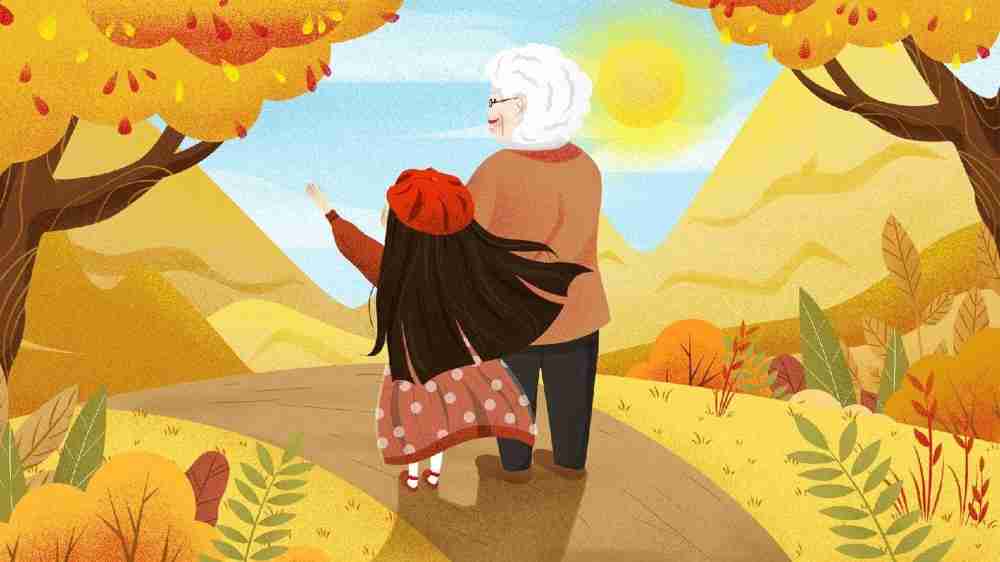
Conclusion
In conclusion, the Cold Food Festival is a time for remembrance, respect, and celebration. It is a reminder of the importance of honoring our ancestors and of the continuity of life and the changing of the seasons. Whether you observe the festival through eating cold food, visiting graves, or engaging in outdoor activities, the Cold Food Festival is a cherished tradition that continues to bring people together in meaningful ways.